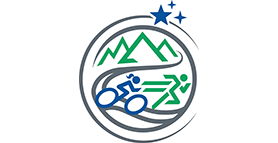Neuromuscular Diseases Laboratory
The focus of the Neuromuscular Center is the diagnosis and treatment of muscle diseases known as metabolic myopathies, including inherited disorders of muscle fat, carbohydrate, and mitochondrial muscle metabolism. The Center also specializes in diagnosing and treating inflammatory myopathies, which includes dermatomyositis, polymyositis, inclusion body myositis, immune-mediated necrotizing myopathy, and statin-associated myopathy. Our studies of metabolic and inflammatory myopathies yield novel insights into muscle metabolism and illuminate unforeseen relationships between muscle energy metabolism and physiological response to exercise.
Major energy sources for muscle contraction are glycogen, glucose, and fatty acid.
- Glycolytic disorders - defects that interfere with the breakdown of glycogen or glucose.
- Lipid disorders - defects in the breakdown of fatty acids.
- Mitochondrial disorders - defects that impair both carbohydrate and lipid metabolism.
Many patients suffering from metabolic myopathies present with lifelong exercise intolerance and fatigue, and frequently are seen by many doctors before a correct diagnosis is made.
- Patients may have a defect in one, or more, of the metabolic pathways that normally supply energy to working muscle.
- The muscles simply "run out of gas," and patients may present with exercise intolerance, pain, weakness, and/or cramps related specifically to the increased energy demands of exercise.
- Severe metabolic defects may result in rhabdomyolysis (a condition in which skeletal muscle breaks down rapidly).
Patients with inflammatory myopathies present with weakness and may have other organ system involvement.
- Appropriate diagnosis is vital to avoid misdiagnosing mimics of myositis to tailor therapies for each patient.
The Neuromuscular Center's dedicated Biochemistry Laboratory performs cutting edge functional and exercise testing utilizing the most sophisticated techniques available to evaluate the metabolic machinery of working muscle.
- The faculty of physicians and scientists assembled within the Neuromuscular Center pioneer the application of functional exercise testing to the study of the human muscle disorders.
- A unique capacity of the Neuromuscular Center is the comprehensive biochemical evaluation of abnormalities discovered by exercise testing.
- Diagnosis of muscle disorders characterized by specific metabolic defects utilize:
- Invasive techniques, including muscle biopsy and blood analysis
- Non-invasive techniques, including analysis of expired air, determination of the amount of blood pumped by the heart, and magnetic resonance spectroscopy
Interests
Our research centers upon metabolic and physiologic investigation of muscle disorders using exercise testing, magnetic resonance spectroscopy, and detailed biochemical analysis.
- Dr. Ronald G. Haller, M.D., is an internationally renowned expert in metabolic disorders of skeletal muscle.
- Author of more than 100 publications, Dr. Haller's work includes articles in Science, the New England Journal of Medicine, and the Journal of Clinical Investigation.
- Dr. Haller maintains active scientific collaborations with investigators in the United Kingdom, Sweden, Denmark, and the United States.
- Dr. Salman Bhai leads clinical and translational research efforts for inflammatory myopathies.
-
Dynamic Monitoring of Carnitine and Acetylcarnitine
-
Increased capillaries in mitochondrial myopathy
-
Exertional dyspnea in mitochondrial myopathy
-
Deep splice site mutations preserving minimal residual glycogenolysis ameliorate
-
Splice mutation in the iron-sulfur cluster scaffold protein
-
Aerobic Conditioning
-
The effect of oral sucrose on exercise tolerance in McArdle's disease
-
The spectrum of exercise capacity in mitochondrial myopathies
-
The spontaneous “second wind” and a glucose-induced second “second wind” in McArdle disease
-
Venous pO2 during aerobic forearm exercise
-
Pain profile and opioid medication use in patients with idiopathic inflammatory myopathies
Bhashyam, A., Lubinus, M., Filmore, E., Wilson, L., Williams, J., Gonzalez Ramos, O., & Bhai, S. (2022). Pain profile and opioid medication use in patients with idiopathic inflammatory myopathies. Rheumatology (Oxford, England), keac271. Advance online publication. https://doi.org/10.1093/rheumatology/keac271
-
Patient Assisted Intervention for Neuropathy: Comparison of Treatment in Real Life Situations (PAIN-CONTRoLS) Study Team (2022)
Bhai, S. F., Brown, A., Gajewski, B., Kimminau, K. S., Waitman, L. R., Pasnoor, M., Barohn, R. J., & Patient Assisted Intervention for Neuropathy: Comparison of Treatment in Real Life Situations (PAIN-CONTRoLS) Study Team (2022). A Secondary Analysis of Patient Assisted Intervention for Neuropathy: Comparison of Treatment in Real Life Situations (PAIN-CONTRoLS): Pain's Impact on Sleep, Fatigue, and Activities of Daily Living. Muscle & nerve, 10.1002/mus.27637. Advance online publication. https://doi.org/10.1002/mus.27637
-
BIKE Syndrome: Biking Induced Kinetic Electroshock Syndrome
Bhashyam, A., & Bhai, S. (2022). BIKE Syndrome: Biking Induced Kinetic Electroshock Syndrome. RRNMF Neuromuscular Journal, 3(2), 38–40. https://doi.org/10.17161/rrnmf.v3i2.15903
-
Creatinine Kinase: A test done from muscle memory or clinical reasoning
Bhashyam, A., & Bhai, S. (2022). Creatinine Kinase: A test done from muscle memory or clinical reasoning?. RRNMF Neuromuscular Journal, 3(2), 41–44. https://doi.org/10.17161/rrnmf.v3i2.15904
-
Is it really myositis? Mimics and pitfalls
Bhai SF, Dimachkie MM, de Visser M. Is it really myositis? Mimics and pitfalls [published online ahead of print, 2022 Jun 22]. Best Pract Res Clin Rheumatol. 2022;101764. https://doi:10.1016/j.berh.2022.101764




